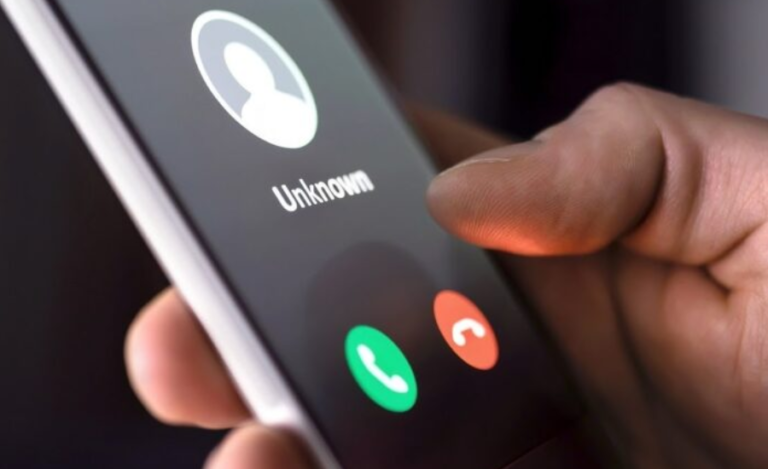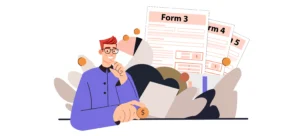How To Protect Yourself From 1866 3688266 : Identifying And Avoiding Nuisance Calls

Receiving unexpected calls from unfamiliar numbers can be unsettling, especially when they become persistent. One such number, 1866 3688266, has been reported frequently, raising concerns about its authenticity and purpose. If you’ve been questioning whether these calls pose any risks, you’re not alone. This article delves into the possible threats associated with the 1866 3688266 number, highlights common scams and nuisance tactics tied to such calls, and offers practical advice on how to safeguard yourself from these unwelcome intrusions.
Tracing The Caller
Understanding the 1866 Area Code
The number 1866 3688266 features the 1866 prefix, a toll-free area code used throughout North America. These numbers are often utilized by businesses to offer free customer service calls, but they can also be exploited by scammers and unsolicited marketers. Since toll-free numbers like this one aren’t tied to a specific region, pinpointing the caller’s location can be difficult, adding an extra layer of complexity when trying to identify the source of these calls.
Using Reverse Phone Lookup Services

For more detailed information on 1866 3688266 consider utilizing reverse phone lookup tools. These tools can help reveal who is behind a mysterious number. Here’s a step-by-step guide to using these services:
- Select a Reliable Platform: There are numerous reverse phone lookup websites available, such as Whitepages, Truecaller, and Spokeo. Choose one that is well-reviewed and has a history of providing accurate information.
- Input the Number: Enter the phone number 1866 3688266 into the search field of the selected service.
- Analyze the Results: The service may return data such as the caller’s name, address, or any complaints filed against the number. However, exercise caution as some information might be incomplete or inaccurate.
By following these steps, you can gain more insight into the identity of the caller and make informed decisions on how to handle these unsolicited contacts.
Section 1: Recognizing Robocalls
Confirming Suspicious Numbers
Robocall numbers like 1866 3688266 are frequently employed by automated systems to make a large volume of calls, often with deceptive intentions. Verifying that such numbers are indeed robocalls is essential to avoid falling victim to potential scams.
Caller ID Manipulation: Scammers often use techniques like caller ID spoofing to disguise their calls, making it appear as though the call is from a legitimate organization or a local number. In the case of 1866 3688266 the number may seem to be from a trusted entity, increasing its credibility and potential to mislead recipients.
Recognizing Signs of a Robocall

Calls from numbers like 1866 3688266 typically follow predictable patterns, featuring pre-recorded messages that may include:
- Urgent warnings requiring immediate action regarding your account.
- Promises of winnings or exclusive rewards.
- Requests for sensitive information such as bank details.
If you’ve received a call that includes any of these elements, it is likely a robocall. Sharing your experience with others can help them recognize similar scams and avoid falling into the same traps.
Section 2: Potential Threats of Robocalls
Financial Deceptions
Robocalls are often used to execute various financial scams. Some common strategies include:
- Fake Debt Collection: Claiming you owe money and Legal threat consequences if you do not pay immediately.
- Fraudulent Offers: Promoting non-existent investment opportunities or products.
- Prize Frauds: Announcing you have won a prize but requiring you to provide payment or personal details to claim it.
Theft of Personal Information
These calls can also be a ploy to steal personal data for identity theft purposes. Scammers might ask for:
- Social Security numbers.
- Bank account or credit card information.
Sharing such details can lead to unauthorized transactions and long-term financial harm.
Phishing Schemes
Some robocalls may direct you to malicious websites or ask for personal details through automated systems. They might offer dubious services or products that require an upfront payment, all designed to harvest your personal information.
Section 3: How to Protect Yourself

Avoid Engaging
The best response to a robocall is to end the call immediately. Engaging with the call in any way, such as pressing a button to “speak to a representative,” can confirm to the scammer that your number is active, potentially leading to more calls.
Do Not Return the Call
Refrain from calling the number back. Doing so may verify your number as active, making it a target for additional robocalls and scams.
Block the Caller
Blocking the number is an effective way to prevent future calls. Here’s how to block numbers on different devices:
- iPhone: Open the Phone app > Recent calls > Tap the “i” next to the number > Block this Caller.
- Android: Open the Phone app > Recent calls > Tap the number > Block/report spam.
- Landline: Contact your phone service provider for guidance on blocking numbers.
Register on the National Do Not Call List
Adding your number to the National Do Not Call Registry can help reduce the volume of unwanted calls. You can register your number at DoNotCall.gov.
Use Call-Blocking Apps
Consider using call-blocking apps to filter out unwanted calls. Some popular apps include:
- Hiya
- Truecaller
- Nomorobo
These apps can help identify and block robocalls, providing an additional layer of protection.
Section 4: Reporting Robocalls
File a Complaint with the FCC
You can report robocalls to the Federal Communications Commission (FCC) through their website. Include details about the call, such as the number and the content of the message.
Notify Your Phone Carrier
Many phone carriers have services in place to help with robocalls. Reach out to your carrier and report the number. They may offer additional tools or even block the number on your behalf.
Report to the FTC
The Federal Trade Commission (FTC) also accepts reports on robocalls. You can use their online form to provide information about the call and its nature.
Section 5: Additional Safety Measures

Be Cautious with Personal Information
Always be skeptical when asked to share personal details over the phone, especially with unsolicited calls. Confirm the identity of the caller through official means before providing any information.
Keep Your Devices Secure
Regularly update your phone’s operating system and any installed security apps. These updates often include fixes for security vulnerabilities that scammers could exploit.
Raise Awareness
Educate your family and friends about the risks of robocalls. Inform them about how to identify and handle these calls, especially those who might be less familiar with technology.
Types Of Scams And Annoying Calls
Telemarketing Calls
Toll-free numbers, such as 1866 3688266, are often utilized by telemarketers. While some of these calls may be legitimate, many use various strategies to mislead and manipulate individuals:
- Pressure Sales Tactics: Telemarketers may use high-pressure tactics to convince you to purchase items or services that you do not need. This can include creating a sense of urgency or making you feel obligated to buy.
- Bogus Offers: Some telemarketers might present offers that appear to be incredibly beneficial but are ultimately scams. These can include unrealistically low prices, false discounts, or fake giveaways intended to lure you into making a purchase or sharing personal information.
Debt Collection Calls
Numbers like 1866 3688266 are also frequently used by debt collectors, who may employ a range of methods to coerce individuals into settling debts:
- Aggressive Collection Methods: Some debt collectors may use intimidating language or employ misleading tactics to pressure you into paying, even if the debt is not legitimate.
- Unverified Debt Claims: There are cases where debt collectors assert that you owe money you do not actually owe. They rely on the hope that you will pay to avoid further hassle or confrontation, even if their claims are unfounded.
Phishing Scams
Phishing scams aim to extract personal and financial information under false pretenses. Calls from numbers like 1866 3688266 may involve:
- Fake Surveys or Competitions: Scammers might lure you with the promise of a prize or reward in exchange for completing a survey or entering a contest. The goal is to gather your personal information, which can be used for identity theft or other malicious activities.
- Impersonation Tactics: Fraudsters may pose as representatives from reputable organizations, such as banks or government agencies, to gain your trust and trick you into providing sensitive details like account numbers or Social Security information.
Automated Robocalls
Automated calls, or robocalls, use pre-recorded messages and are often associated with fraudulent schemes. These calls can be particularly intrusive and may involve:
- Deceptive Claims: Robocalls might falsely state that you have won a prize or that there is an urgent issue with one of your accounts, encouraging you to share personal information or make a payment.
- Fake Surveys: These calls may include seemingly harmless questions designed to gather personal information. This data can then be used for more targeted scams or sold to other malicious parties.
Protecting Yourself From Scam Calls

Registering with the Do Not Call List
One effective way to reduce the number of unwanted calls is by adding your phone number to the National Do Not Call Registry:
- Register Online: Visit the official website at DoNotCall.gov to sign up.
- Complete the Registration: Enter your phone number and email address as directed, and follow the on-screen instructions to finalize your registration.
Understanding Caller ID Spoofing
Caller ID spoofing involves the manipulation of caller information to disguise the true origin of the call. To protect yourself:
- Be Cautious: Don’t rely solely on caller ID to verify who is calling. Scammers can easily make it appear as if the call is coming from a trustworthy source.
- Verify Independently: If the caller claims to represent a legitimate company or organization, hang up and contact them directly using a verified phone number from their official website.
Screening Your Calls
Effective call screening can help you avoid unwanted and potentially harmful calls:
- Use Call Blocking Apps: Download and install apps like Nomorobo or Hiya to identify and block known spam callers.
- Let Voicemail Screen Unknown Calls: If you’re unsure about a caller, let the call go to voicemail. This way, you can review the message before deciding whether to return the call.
Handling Suspicious Calls
If you receive a call from a number like 1866 3688266 that feels suspicious, it’s best to take the following actions:
- Hang Up Immediately: If the caller is aggressive, makes threats, or offers something that seems too good to be true, disconnect the call without engaging.
- Report the Incident: By reporting the call, you can help authorities combat these scams and protect others from falling victim.
Reporting Scam And Unwanted Calls

Federal Trade Commission (FTC)
You can report scam calls to the FTC to help them track and stop fraudulent activities:
- File a Complaint Online: Go to the FTC’s website at FTC.gov/complaint and submit the details of the scam call.
- Provide Comprehensive Information: Include all relevant information about the caller, the nature of the call, and any other details that could aid in their investigation.
State Attorney General’s Office
Each state has an office dedicated to handling consumer fraud and protecting residents:
- Locate Your Attorney General’s Office: Search online for your state’s Attorney General’s contact information.
- Submit Your Complaint: Follow their guidelines for reporting scams, including any documentation or evidence you have.
Contacting Your Phone Carrier
Your phone carrier can offer additional tools to help you manage and block unwanted calls:
- Reach Out for Support: Contact your carrier’s customer service to ask about any call-blocking services they provide.
- Activate Call Blocking Features: Many carriers offer options to block specific numbers or categories of calls, reducing the likelihood of receiving scam calls in the future.
You may also read: 305-209-9818
FAQs
1. What is the National Do Not Call Registry, and how does it work?
The National Do Not Call Registry is a free service that allows individuals to opt out of receiving unsolicited sales calls. By registering your phone number at DoNotCall.gov, telemarketers are legally prohibited from calling you. However, the registry does not prevent calls from political organizations, charities, or companies with which you have an existing relationship.
2. How can I identify a scam call?
Scam calls often involve aggressive tactics, promises of rewards, or urgent threats of legal action. Caller ID spoofing, where the caller disguises their number, is commonly used. Be wary of calls requesting personal information, offering too-good-to-be-true deals, or threatening consequences if you don’t comply.
3. What should I do if I receive a suspicious call?
If you receive a suspicious call, the best action is to hang up immediately. Do not engage with the caller or provide any personal information. Avoid calling the number back, as this can confirm to the scammer that your number is active, leading to more unwanted calls.
4. How can I block unwanted calls on my phone?
Most smartphones and landline providers offer call-blocking features. On an iPhone, you can go to the Phone app, tap on “Recents,” and then select the information icon next to the number to block it. On Android, go to the Phone app, tap on the number, and choose “Block/report spam.” For landlines, contact your service provider to learn about available options.
5. Are call-blocking apps effective against scam calls?
Yes, call-blocking apps like Nomorobo, Hiya, and Truecaller can help identify and block known spam numbers. These apps use databases of reported scam numbers to prevent them from reaching you, but they may not be 100% effective against all robocalls, especially new or unreported numbers.
Conclusion
Scam and nuisance calls have become a widespread issue, making it essential to protect yourself and your personal information. By registering with the National Do Not Call Registry, using call-blocking tools, and remaining vigilant, you can significantly reduce the risk of falling victim to scams. Remember to report any suspicious calls to the appropriate authorities, such as the Federal Trade Commission or your state’s Attorney General’s office, to help combat these fraudulent activities. Staying informed and cautious is the best defense against unwanted calls and potential scams.
Stay in touch with us for more updates and alerts! Discoverfuns







